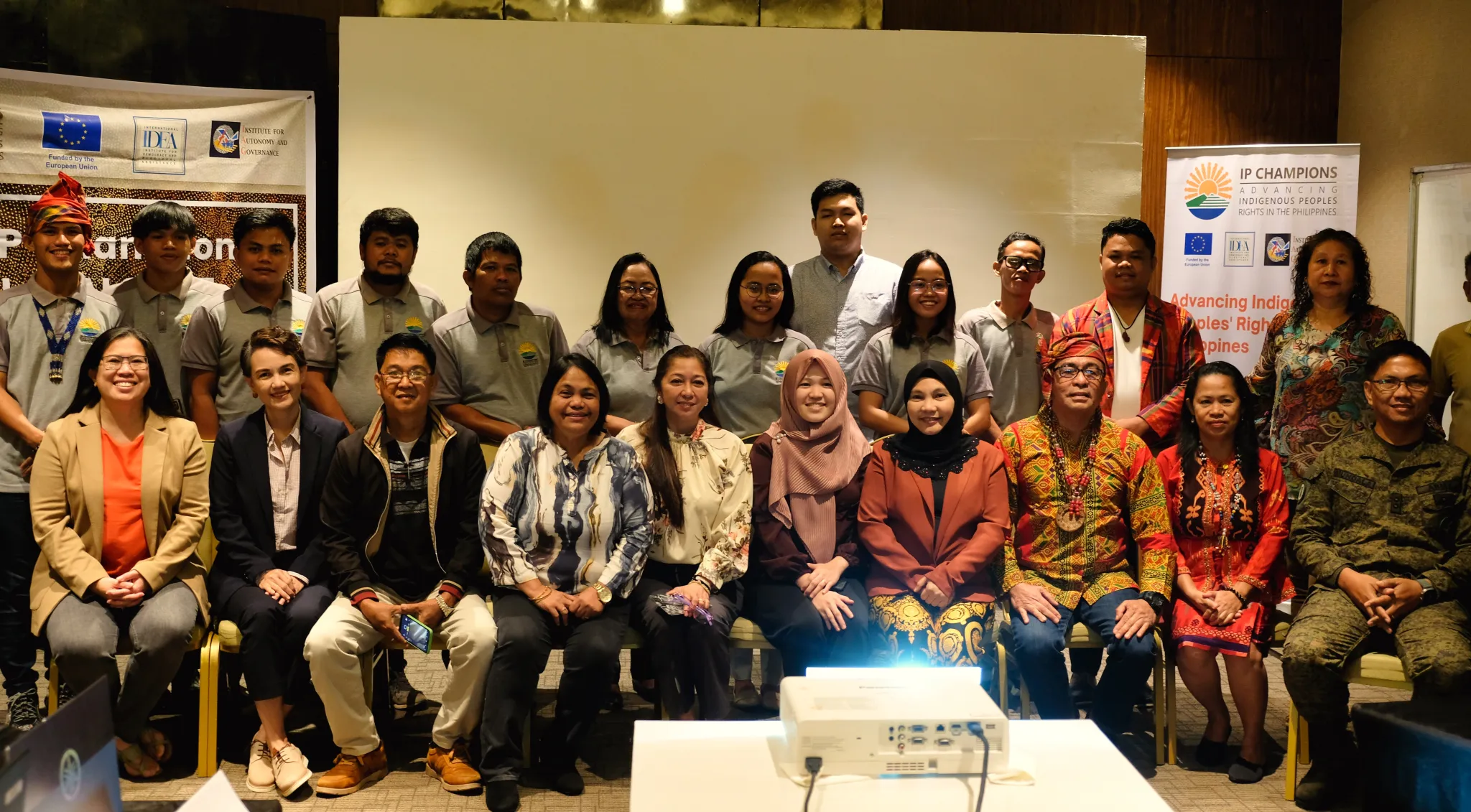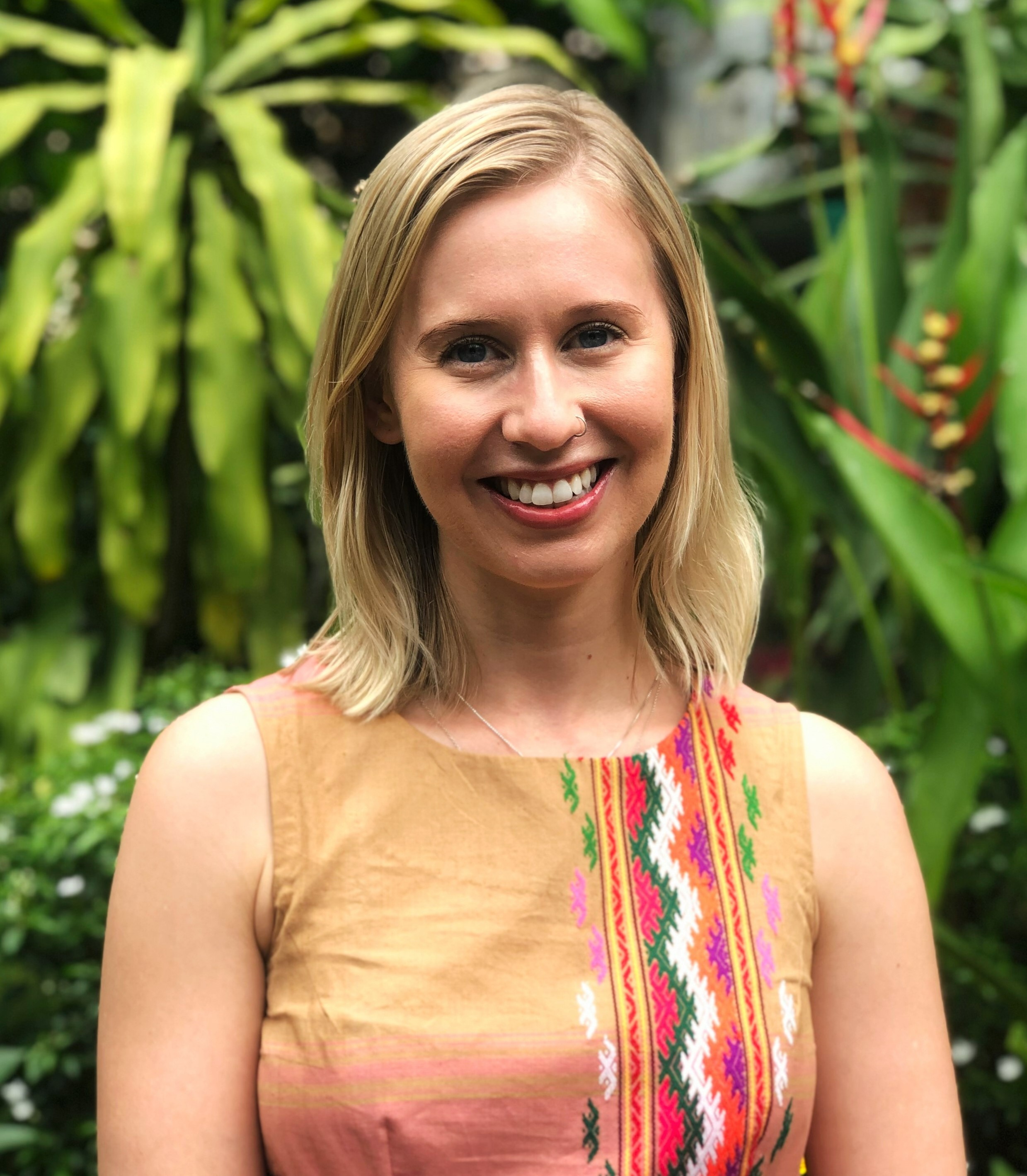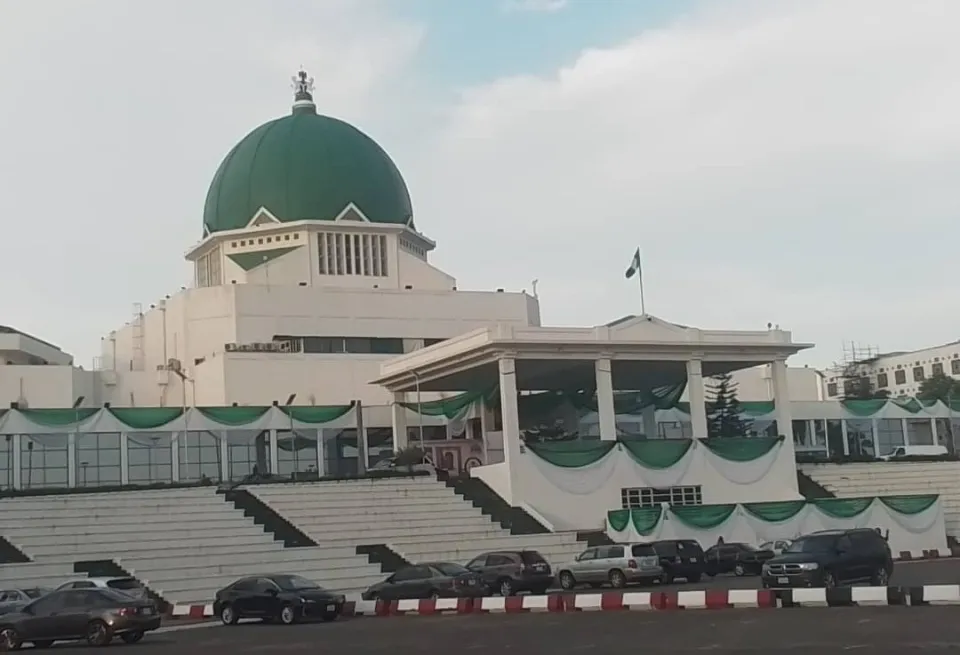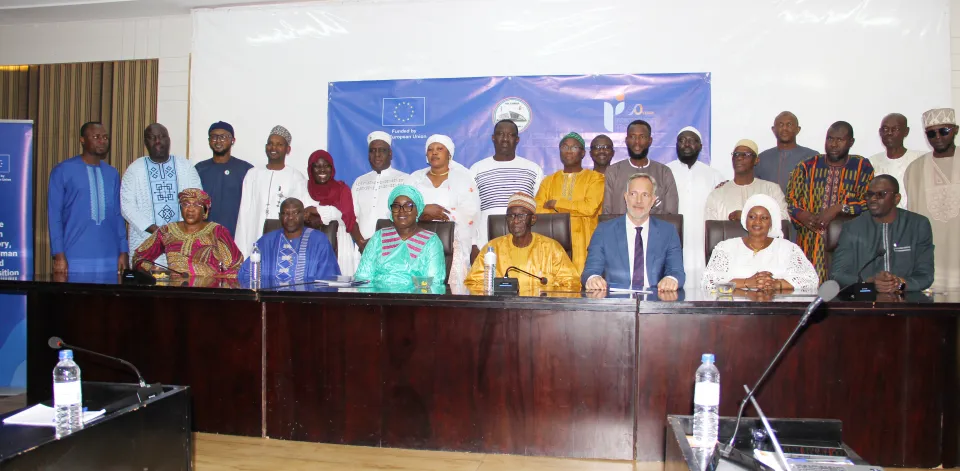From proposal to policy – The Indigenous Peoples in southern Philippines advocating for change

International IDEA and our partner, the Institute for Autonomy and Governance were honoured to host a dialogue between our Indigenous People’s Champions and representatives from many branches of government, known as Institutional Champions, in General Santos, Philippines in May.
The Indigenous People’s Champions Project was first envisioned in 2021 as a platform to bring together rights advocates from the Indigenous community in Bangsamoro Autonomous Region in Muslim Mindanao (BARMM) and the Cordillera Administrative Region (CAR). The most recent regional dialogue was a milestone for the platform, with IP Champion’s in BARMMA presenting their advocacy campaigns to the Institutional Champions – representatives from Bangsamoro Ministry of Indigenous Peoples' Affairs (MIPA), National Commission on Indigenous Peoples (NCIP) Region 12, Ministry of Agriculture, Fisheries and Agrarian Reform (MAFAR), Bangsamoro Women Commission (BWC), and the Bangsamoro Youth Commission (BYC).
The IP Champions – advocates – presented on three priority areas: Self-governance, Cultural Integrity and Identity, and Ancestral Domain. All framed within the context a wider goal: the passage of the Non-Moro Indigenous Peoples Code in the Bangsamoro Autonomous Region in Muslim Mindanao (BARMM).
Opening the dialogue, moderator Eunie Martinez Jr, from the Dulagan Manobo tribe, encouraged the IP champions to remain focused on their overarching goal – to promote Indigenous People’s rights and the implementation of the IP Code institutional actors to support the acceptance of the Indigenous Peoples Code by the Bangsamoro Transition Authority. Martinez highlighted the importance of fostering “political will” in the upcoming talks with Institutional Champions, who would attend on day two of the dialogue.
One the first day, attendees worked together to fine their advocacy pitches and ensure consistency across themes. On the second day, the dialogue opened opportunities for collaboration and an exchange of ideas on the regional advocacy plan to be presented by the IP Champions. They also discuss with the Institutional Champions their individual advocacies, shoring up potential support.
For Rica Mae, an Indigenous Peoples champion from the Teduray tribe in Mindanao, focuses her advocacy work on preserving cultural knowledge, the first day was an opportunity to strategise with her fellow IP Champions and ensure their respective advocacy was consistent.
“We [IP Champions] discussed that wanted the dialogue to not only be a conversation [with the Institutional Champions] but for our policy proposals to made into government plans,” she said.
Throughout the first day, Jude Gover, IAG Project Manager, encouraged the IP Champions to consider the methods for creating political will for change in their advocacy approaches, acknowledging the need for sincere buy-in from policymakers and other stakeholders.
As an Institutional Champion, National Commissioner on Indigenous Peoples (NCIP) Jennifer Limpayen Sibug-Las provided words of advice and insight on the second day of the dialogue. Speaking from the perspective of a policymaker, she acknowledged the importance of the IP Champion’s advocacy and the focus on mainstreaming support for cultural preservation.
“Because I am the Commissioner for South Central Mindanao, and deal with education and culture, I was so excited to work with the IP Champions who are advocating on cultural integrity and cultural preservation.
“NCIP as a government agency is really partnering with civil society organisations, and other institutions as well, partnering agencies, just so that we could implement our programmes and policies, we believe in partnership. We believe in collaboration as well as continued cooperation with others and at the same time, believing that the delivery of services should not just be, you know, confined with the agency, but partnering with the other agencies as well to provide the appropriate and social services that our IP partners need on the ground,” she said.
Regional policymakers including the Maguindanao Provincial IPMR (Indigenous People Mandatory Representative), NCIP Ethnographic Commissioner for Central Mindanao, NCIP Libungan Sub-Office, Cotabato City Deputy Mayor for IPs, 6th Infantry Division of the Philippine Army, and the offices of MP Mary Ann Arnado and MP Suharto Ambolodto also attended and leant their support to the IP Champions.
This is the second regional dialogue held between the Champions – first one between IP and Institutional Champions in Cordillera was held in March. A third and final dialogue will be conducted will gather IP Champions from both regions for a dialogue with government agencies and institutional champions at the national level in Manila. This phase of the project forms part of its sustainability aspect, as it establishes collaborations between the IP Champions and inter-agency mechanisms. These collaborations aim to address the challenges faced by IPs in both regions and enhance the overall promotion and protection of IP rights in the Philippines.
This regional dialogue was made possible with the support of the European Union, in partnership with Institute for Autonomy and Governance.
Read more about our work in the Philippines.




